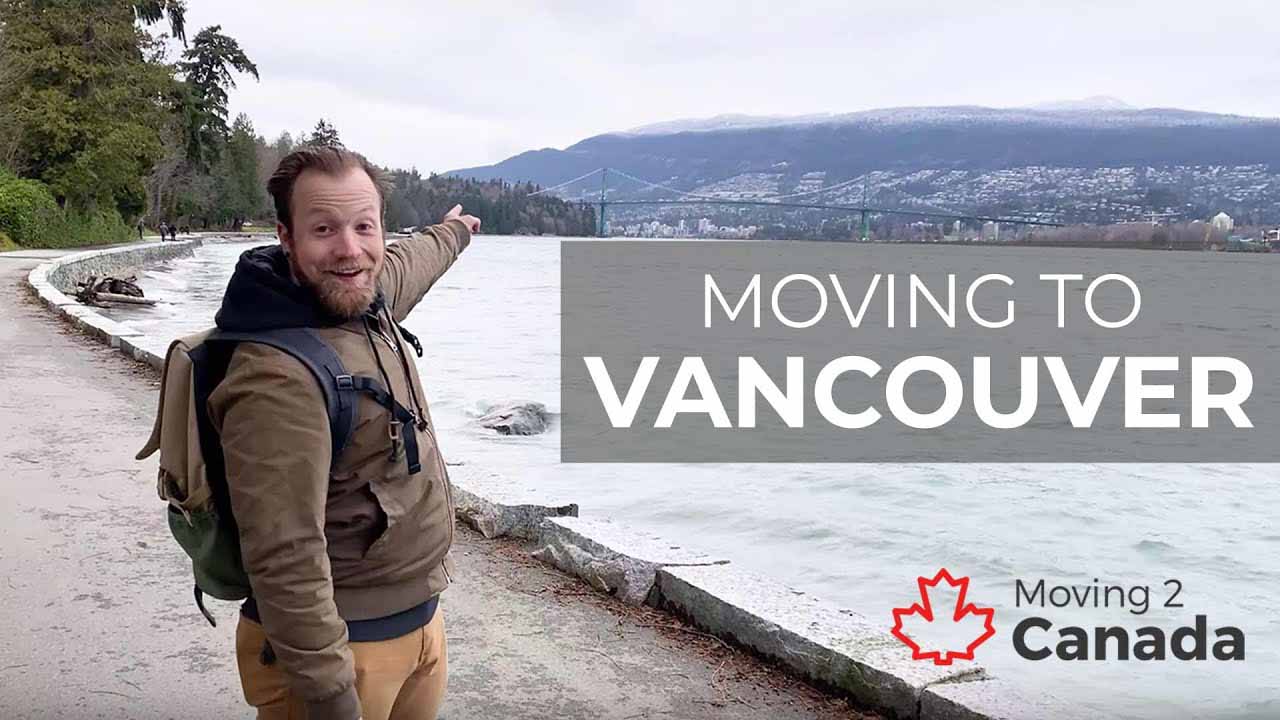Find the best immigration programs for you
Advertisement
If you’re looking for construction jobs in Canada, you can be assured the sector is growing in various cities and regions across the country.
More: Engineering jobs in Canada
Canada’s construction sector provides employment to over 1.3 million people and accounts for approximately 7 percent of the country’s gross domestic product (GDP). The most common areas of construction include:
- Residential (single unit, low-rise, high-rise)
- ICI Buildings (institutional, commercial, and industrial)
- Infrastructure (transportation, water, utilities)
- Mining
- Oil and gas
- LNG (technically part of the oil and gas industry, but separated as it’s a new emerging sector)
Canada’s aging population and general steady economic growth creates strong demand for construction professionals and tradespeople, with the demand for skilled labour consistently outstripping supply. With only around 38 million people living across the world’s second-largest country, Canada continues to depend on international workers to support its construction sector.
So, what are the most in-demand construction jobs in Canada?
- Project Directors – ICI (institutional, commercial and industrial) Buildings & Infrastructure
- Senior Project Managers – ICI Buildings & Infrastructure
- Senior Superintendents – ICI Buildings & Infrastructure
- Commercial Managers & Contracts Managers – Infrastructure
- Senior Estimators – ICI Buildings & Infrastructure
- Design Managers – ICI Buildings & Infrastructure
- Schedulers – Infrastructure
To learn more about typical job titles for construction jobs in Canada, visit this detailed blog from Outpost Recruitment, our sister company which focuses on construction recruitment.

Get personalized immigration help — for free!
Construction professionals
A solid engineering or construction management background provides an excellent technical grounding for construction professionals who wish to pursue a career on the contracting side of the industry. The beautiful thing about construction is that, while a higher education may give you an initial advantage, it’s possible to work your way up the ladder regardless of your level of formal education.
It is important to note that Canada, unlike countries such as Australia, New Zealand, the Middle East, tends to focus on immigration via permanent residence as opposed to brining in temporary foreign workers on short-term permits. It’s relatively easier to qualify for permanent residence in Canada than in many other countries offering attractive construction work. Don’t worry, there are lots of other options to research if you don’t qualify for permanent residence just yet.
Degrees and qualifications
If you want to come to Canada and work in construction, it will help to have one of the following degrees or qualifications:
- Masters / MBA– holding a Masters or MBA designation is highly favourable for immigration to Canada via economic class programs.
- Degree – favourable qualification level for construction professionals with regard to immigration and employment in Canada.
- Higher Diploma <> B. Tech, Higher National Diploma (HND)
- Trade qualification – This may help you get to Canada via the Federal Skilled Trades Program, one of Canada’s permanent residence programs linked with the Express Entry system.
Designations
Engineer in Training (EIT) – once your engineering transcripts have been approved by the provincial engineering body, you may receive this designation.
Professional Engineer (P. Eng.) – For engineers, gaining a P. Eng. designation is less important on the contracting side of the industry, but still highly respected.
Gold Seal Certification (GSC) is a Canadian designation and considered practical for professionals following a career in project management.
Project Management Professional (PMP) – Gaining a Project Manager Professional (PMP) is considered a more suitable global designation for project management professionals.
Chartered Member (MRICS) – Specifically for Quantity Surveyors and Building Surveyors. An MRICS designation is recognised across Canada.
Professional Quantity Surveyor (PQS) – A Canadian designation similar to MRICS, issued to Quantity Surveyors by the Canadian Association of Consulting Quantity Surveyors (CACQS).
Welcome to Outpost Recruitment!
Our sister company, Outpost Recruitment, has been connecting the best international engineering professionals with Canadian employers across civil, infrastructure, and ICI (Institutional, Commercial and Industrial) buildings projects since 2012. Outpost specialises in assisting international candidates relocate to Canada.
Our clients include:
- General Contractors
- Subcontractors (civil, structural, mechanical, electrical, geotechnical)
- Consultants – project delivery, cost consultants
Outpost Recruitment works with leading contractors across infrastructure and buildings to fill the following construction roles in Canada:
- Project Director / Operations Manager
- Project Managers – All Levels (Junior PM to Senior)
- Design Managers
- Superintendents
- Estimators
How to move to Canada as a Construction Professional
The great thing about moving to Canada as a construction professional is that there are a multitude of options available to you. In addition, unlike other countries like Australia or the Gulf States, there are work permit categories that don’t require a job offer, and there is a direct, and relatively quick, route to permanent residence (PR), even if you don’t have a job offer and even if you have never lived in Canada before. Canada welcomes construction workers through a variety of PR programs, as well through a range of work permit categories. You can learn more about all these programs, including work permits, the popular IEC program and much more, in a detailed blog from our sister-site, Outpost Recruitment.
Locations to consider
It may be worth reviewing our content below around employment trends in Canada over the past decade. Depending on your sector of choice, you can review your best options with regard to location
- Toronto – The Greater Toronto Area (GTA) includes lots of major suburbs, as well as a downtown core famous for the CN Tower and the ever-increasing number of skyscrapers in its shadow. The GTA is a huge area of more than 6 million people and represents the largest employment market in Canada for construction.
- Vancouver – The Vancouver Lower Mainland area encompasses over 10 cities (municipalities) and has a booming real estate market with a strong pipeline of infrastructure projects.
- Montreal – Quebec’s largest city, and Canada’s second-largest, offers lots of opportunities, but you may need to reconsider if you do not have working knowledge of French.
- Ottawa – Canada’s capital city offers a great quality of life.
- Calgary – Calgary is the home of oil and gas in Canada, and struggling due to low commodity prices and lack of pipelines to bring Canada’s oil to world markets.
- Edmonton – Edmonton is the blue collar town in Alberta’s oil and gas industry.
- Fly-in-Fly-Out (FIFO) – If your goal is to work on remote projects, there are lots of options including LNG, traditional oil and gas, mining or infrastructure projects to choose from. You can live in a major city and commute for your rotation shift.
Let’s quickly examine some historical employment trends in construction across Canada to help you build your knowledge and decide on the right location within Canada.
2009 – 2014: Industrial boom drives demand for international workers across all construction sectors
Canada is a sparsely populated land mass that boasts huge deposits of natural resources. Like Australia, the economy of both countries tend to correlate closely to prices of natural resources with booms and bust patterns in short cycles. Canada is a leading producer of oil, natural gas, copper, gold, silver, zinc, iron, potash, uranium, and molybdenum, among other commodities. The oil sands region in Northern Alberta alone accounts for one third of the world’s oil reserves, but resource deposits can be found across all of Canada’s provinces and territories.
High commodity prices from 2009 to 2014 led to significant investment in both mining and oil and gas projects across Canada. Resource-extraction is labour intensive, so this led to economic booms in the Prairie provinces (Alberta, Saskatchewan, and Manitoba) with workers flocking from all over Canada and from around the world. These provinces experienced population increases during this period, which boosted the local economies of cities such as Calgary, Edmonton, Fort McMurray, Regina, and Saskatoon. With cities and towns growing across the Prairies, each municipality needed new infrastructure and workers to support the growing population, so the shortage of skilled workers affected many industries, and not just natural resources. In this period, Calgary and Edmonton were competing with Toronto and Vancouver for international workers, as these locations offered more opportunity for economic immigrants and a lower cost of living.
With local and international workers relocating to be part of the booming industrial sector, this in turn created shortages across other areas of construction jobs in Canada. The resource boom attracted foreign workers as economic migrants arrived in search of opportunity. Fly-in-fly-out (FIFO) workers arrived at Fort McMurray from all over the world to be part of the oil sands boom. Employers in Vancouver and Toronto were losing some of their workforce to the industrial sector and needed international workers to fill the gaps, so the labour shortage intensified. This demand was evidenced by Canadian companies organizing international recruitment drives during these years as skills shortages occurred across all construction. The local supply of labour was insufficient to meet demand, so employers were able to gain permission to sponsor foreign workers to meet their labour needs. High oil prices caused a surge in construction of oil and gas plants. Local Canadian workers were flocking to higher paid roles in the resource sector and this created demand for international workers to fill their places all over Canada.
2015 onwards: Infrastructure boom
Lower commodity prices since 2014 have meant cooling labour markets in the Prairies provinces, with declining investment in resource projects and economic stagnation in the Prairie provinces. Since the slowdown of the industrial sector, Canada has invested heavily in infrastructure programs across the country, and this has helped absorb many workers coming from the resource sector. Since 2014, demand for international workers has decreased as Canada’s focus has been on absorbing local Canadian workers into other sectors. This has meant employer sponsorship is less common than previously, but international workers who obtain temporary work permits or permanent residency continue to find opportunities in Canada.
The net impact of these changes is that international workers are now focusing more on the provinces of British Columbia and Ontario. Toronto, Ontario and Vancouver, British Columbia, now represent more stable destinations for international workers as the economies of both cities are bouyed by tourism, film, and IT, with strong foreign investment making them less dependent on resource prices. Both locations have strong residential, institutional, and commercial construction sectors, with plenty of infrastructure activity as populations continue to grow.
The current COVID-19 pandemic is both a health and economic crisis, and it is clear that Canada’s construction industry will feel the impacts of COVID-19 in the years to come. Fortunately, a commitment to infrastructure spending as a cornerstone of economic recovery appears to be lessening some of initial shockwaves of the pandemic on the construction sector. You can keep updated on all the latest developments regarding COVID-19 in Canada here.
Outpost Recruitment
Our sister company, Outpost Recruitment, has been connecting the best international construction professionals with Canadian employers across civil, infrastructure and ICI buildings projects for over five years.
If you would like to explore opportunities to work in Canada’s construction sector, visit Outpost Recruitment to register and research open job opportunities.
Learn What It’s Like to Work In Construction in Canada
We’ve published some stories from construction professionals who moved to Canada. Read their stories here:
- Stephen Blank – Construction Estimator.
- Fergal Duff – Project Manager.
- Eoghan Hayes – Mechanical Engineer.
- Dave Green – Commissioning Consultant, Buildings
- Niamh Ní Chróinín – Senior Estimator / Project Controls Manager (Main Contractor)
- Alan Moat – Construction Project Manager.
- See candidate testimonials here.
If you are a Canadian employer looking to hire foreign workers or newcomers to Canada in the construction industry, see how Moving2Canada can help. We offer a range of hiring solutions to suit you needs. Reach out here.
Related Content

FAQ: Navigating Tax Season in Canada for Newcomers
Read more

5 Tips for a Successful Career Transition in Canada in 2024
Read more

How Much Is Income Tax In Canada? Well, It Depends On Where You Live & Work
Read more

How Much Does It Cost To Raise a Child In Canada?
Read more









